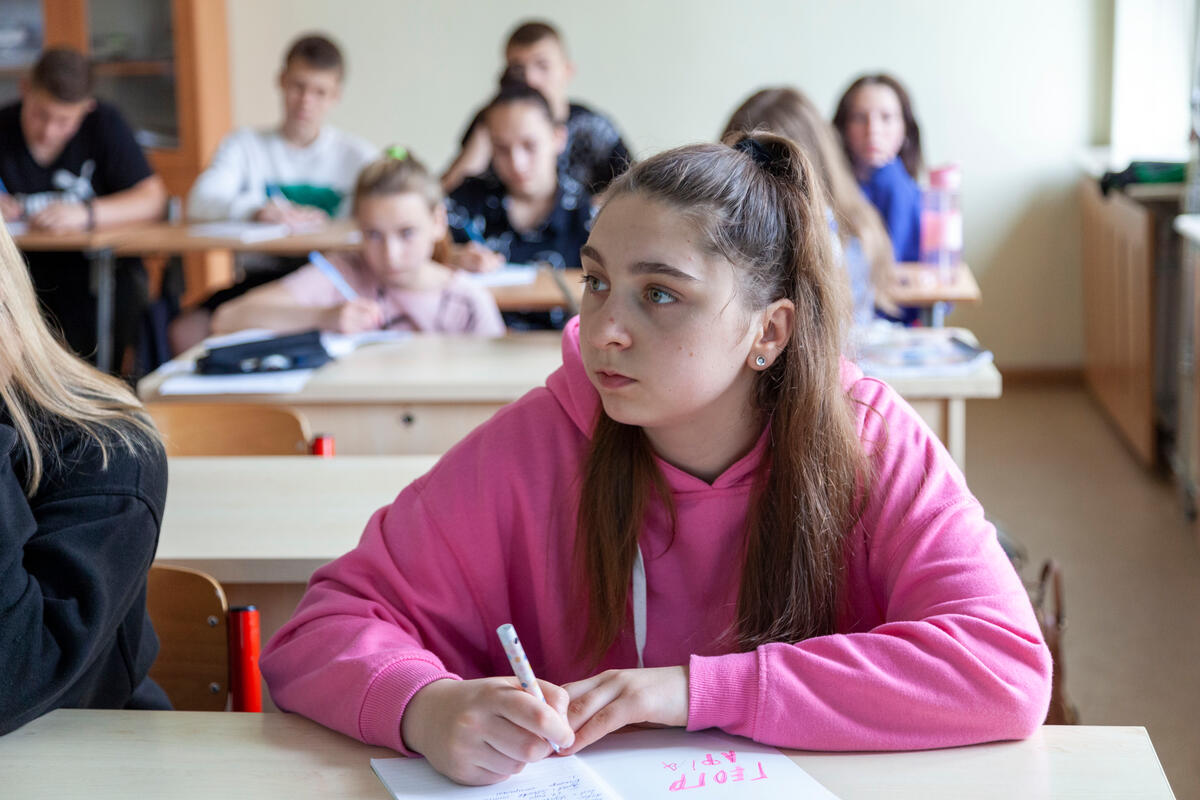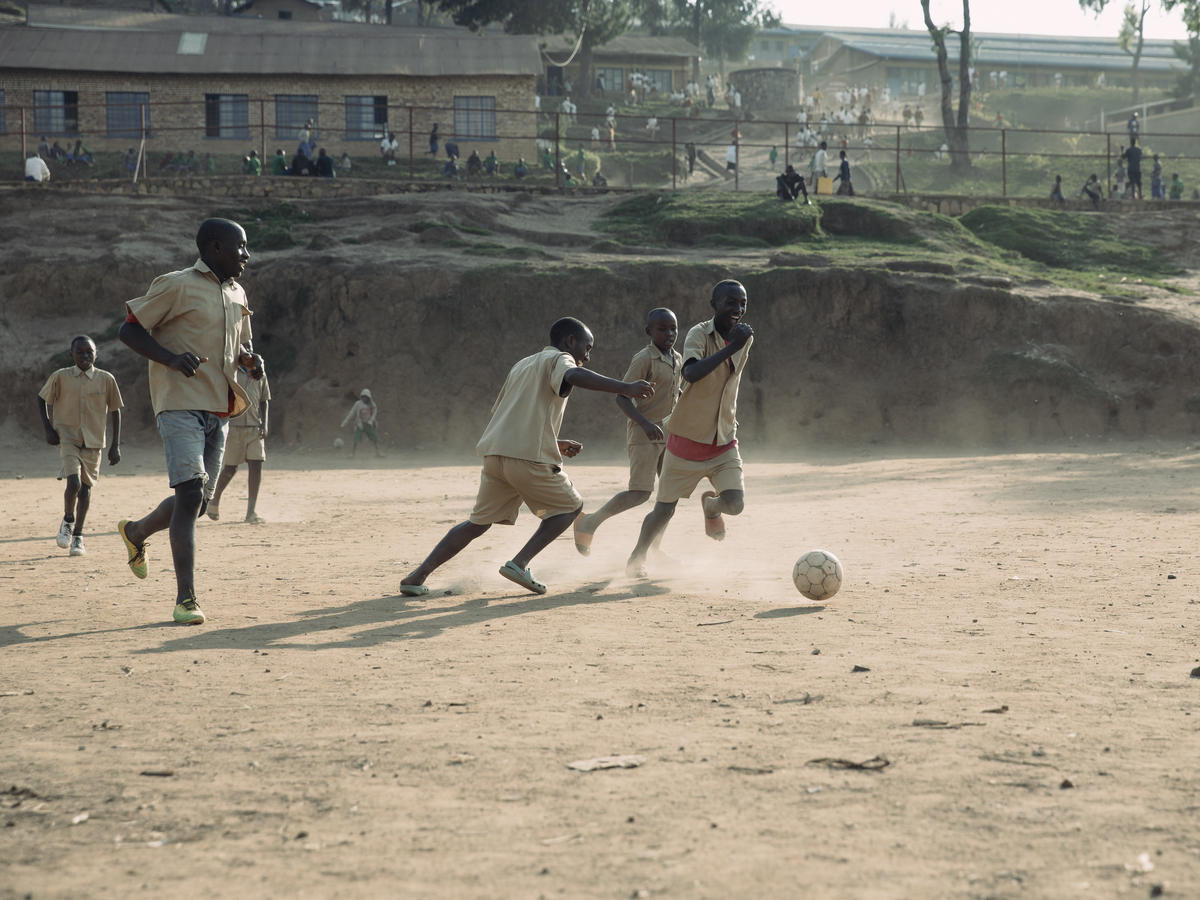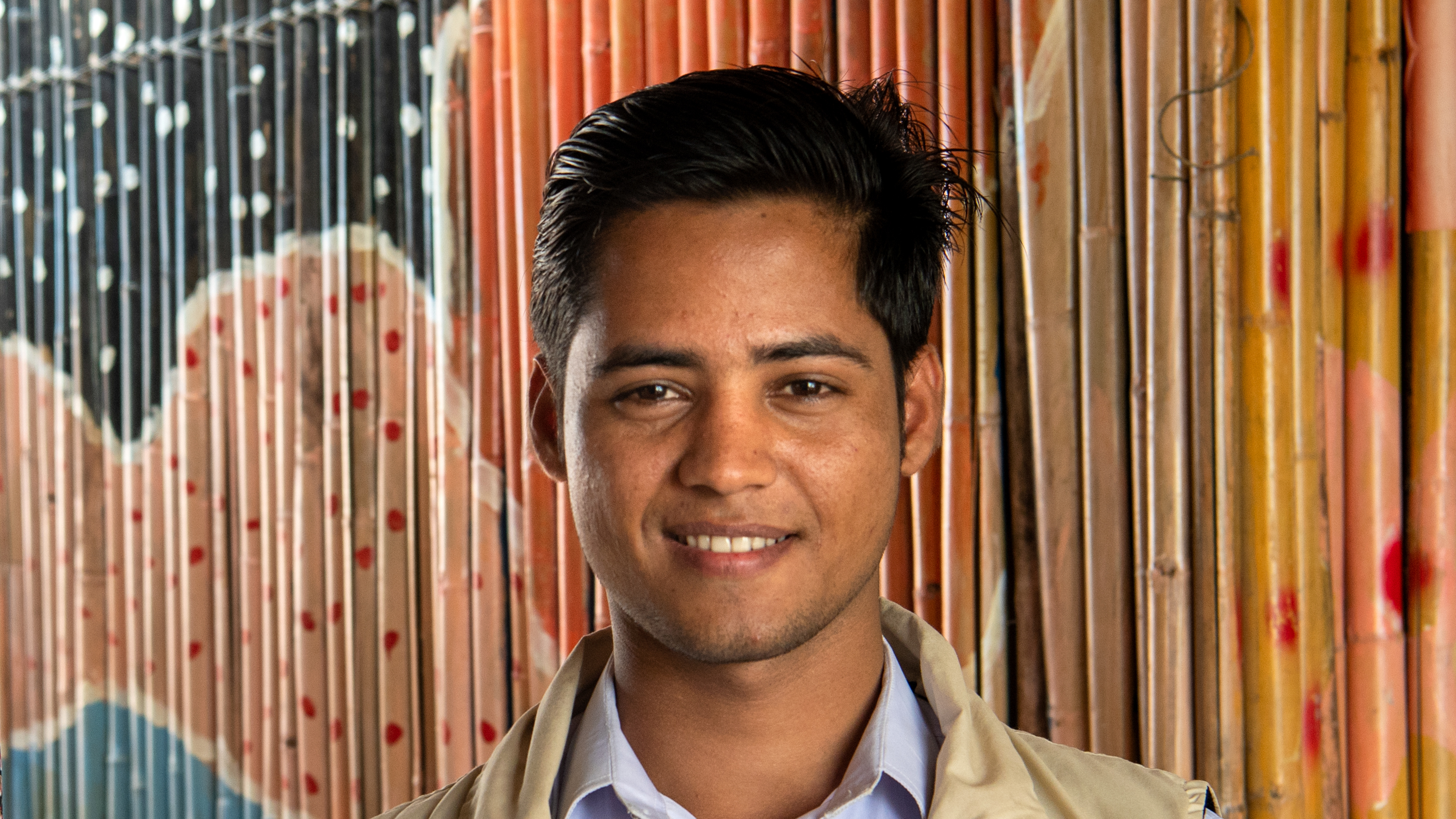Children should not be refugees, Bhutanese girl tells U.N.
Children should not be refugees, Bhutanese girl tells U.N.
UNITED NATIONS, N.Y. - Ganga Adhikari, a 17-year old Bhutanese refugee currently living in a refugee camp in Nepal, Thursday called on the United Nations to speed up the repatriation process and provide educational opportunities for children in camps.
Adhikari handed High Commissioner Ruud Lubbers a petition to Secretary-General Kofi Annan, President George Bush and other leaders signed by 43,000 refugee children in seven camps in Nepal asking that they be allowed to return home. "My message to them is that children should not be made refugees," she said.
The young refugee told a UNHCR-organised panel, "Refugee Children: One Day We Had to Run" how she was forced to leave to her country at the age of six. Adhikari, whose country is located in the Himalayas between India and China, finally made her way to a camp in Nepal, where she has been able to go to school. "It is not easy for girls like me to study because there is work to be done at home," she said.
In an address to the U.N. General Assembly on Wednesday evening, Lubbers said that "children are our mirror to the future," but if "all they know is deprivation, violence, and exploitation, it is unlikely that they will contribute to the development of stable, just and productive societies."
He said refugee children were among the most vulnerable of all the world's children.
"These children deserve special attention," Lubbers said, adding that they are often exposed to armed conflict and are sometimes subjected to sexual abuse and violence. Many lack basic health care, food, water and shelter and are particularly exposed to contagious diseases such as HIV-AIDS.
The High Commissioner said that preventive measures must be taken to protect refugee children from violence and abuse, adding that he was "committed to a zero-tolerance policy against sexual exploitation."
The refugee chief cited the improvement of camp layouts and modification of food distribution systems as examples of preventive steps to protect women and children. He said UNHCR was currently working with partner agencies and non-governmental organizations on numerous measures to strengthen protection of refugee children.
The High Commissioner added that it was "vital to monitor compliance and ensure accountability" of those responsible for protecting children's fundamental rights. "Together with the Secretary-General, I am committed to a zero-tolerance policy against sexual exploitation, abuse, and violence," he said.
UNHCR cares for some 20 million refugees, returnees, asylum seekers, internally displaced people and others worldwide. About 40 percent of that total are refugees under the age of 18.
"I have had the opportunity to meet many refugee children," Lubbers told the General Assembly. "They all had a few overarching dreams in common - enough food and other basic assistance, a secure environment, reunification with their families, and access to education and sports and help to become self-reliant through skills training."
The High Commissioner said his agency was working closely with the International Committee of the Red Cross, UNICEF and other partners to resolve one of the most serious problems facing refugee children - separation from their families during flight.
He said that in the Great Lakes region of Africa cooperation between U.N. agencies had resulted in the reunification of some 62,000 Rwandan children with their families between 1994 and 1998.
But he added that much work remained to be done, and called for a renewed commitment from the international community "to ensure that children have access to asylum procedures and that they are assisted by legal representatives."
Speaking at the panel with Adhikari, Lubbers criticized countries that put refugee children and those seeking asylum in detention centres while their cases are being processed.
Lubbers said that when children seek asylum in Western countries "we have these very well-organized governments and nice-speaking parliamentarians who are responsible for putting them [children] in detention centres, often alongside criminals."
UNHCR generally opposes the detention of asylum seekers while their cases are being processed, especially that of children under the age of 18.








